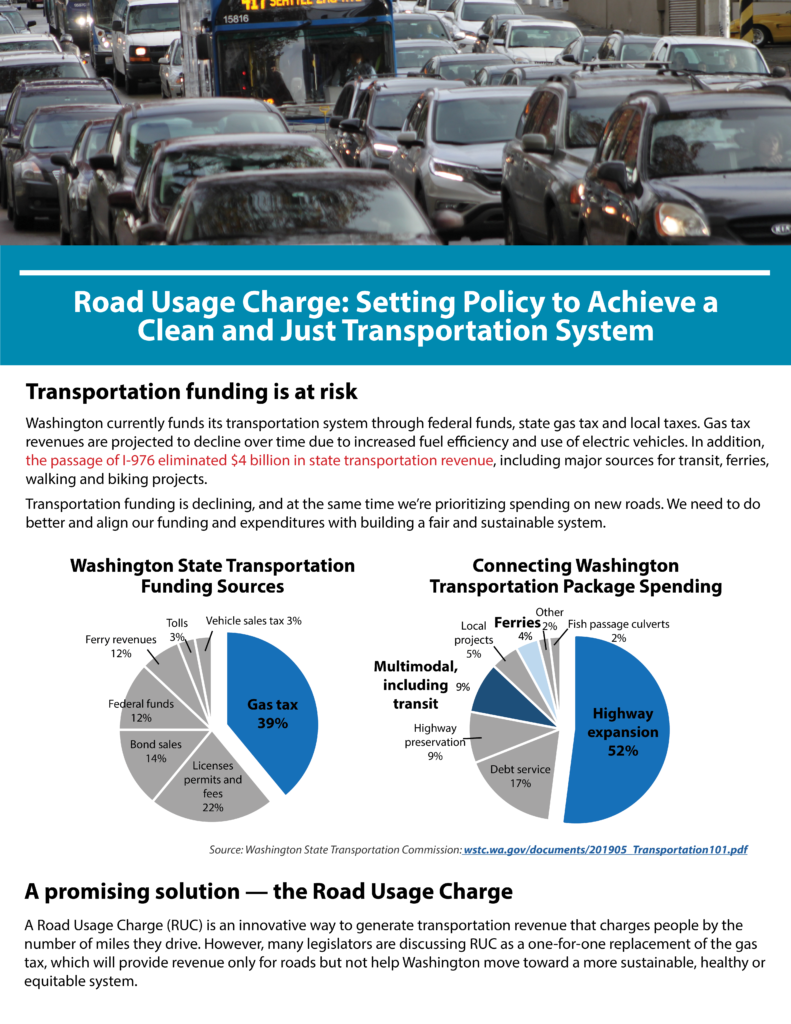Transportation funding is at risk
Washington currently funds its transportation system through federal funds, state gas tax and local taxes. Gas tax revenues are projected to decline over time due to increased fuel efficiency and use of electric vehicles. In addition, the passage of I-976 eliminated $4 billion in state transportation revenue, including major sources for transit, ferries, walking and biking projects.
Transportation funding is declining, and at the same time we’re prioritizing spending on new roads. We need to do better and align our funding and expenditures with building a fair and sustainable system.
A promising solution — the Road Usage Charge
A Road Usage Charge (RUC) is an innovative way to generate transportation revenue that charges people by the number of miles they drive. However, many legislators are discussing RUC as a one-for-one replacement of the gas tax, which will provide revenue only for roads but not help Washington move toward a more sustainable, healthy or equitable system.
Our RUC priorities
To align the State’s transportation funding with its stated mobility, health and climate goals, we want to see RUC:
→ Fund a clean and just transportation system, by broadening spending beyond highways alone
→ Create a fairer and transparent tax system, through a progressive rate structure
→ Address the climate crisis, through sustainable reinvestments and by incentivizing less driving and
cleaner vehicles
How would a RUC work?
→ Drivers would pay a fee per mile driven
→ Mileage could be reported in multiple ways, including odometer readings, plug-in devices
and smartphone apps
→ Top concerns yet to be addressed include: Privacy and data collection, compliance and administrative costs,
fairness and equity, rate structures, use of revenue and travel between states
Though there are many details to work out, Washington State has already conducted an initial assessment and a pilot to test whether and how a RUC could be implemented and determined it is technically feasible.
What’s next
Additional research is needed — especially to determine how a RUC could affect highly impacted communities. The initial pilot was promising and next steps should determine a fair and progressive rate structure, and how to incentivize less driving and cleaner vehicles.
Check out our one pager below.
This is a joint effort by transportation and environmental advocates, including Climate Solutions, Front and Centered, Futurewise, Sierra Club, The Nature Conservancy in Washington, Transportation Choices Coalition, Washington Environmental Council/Washington Conservation Voters.





